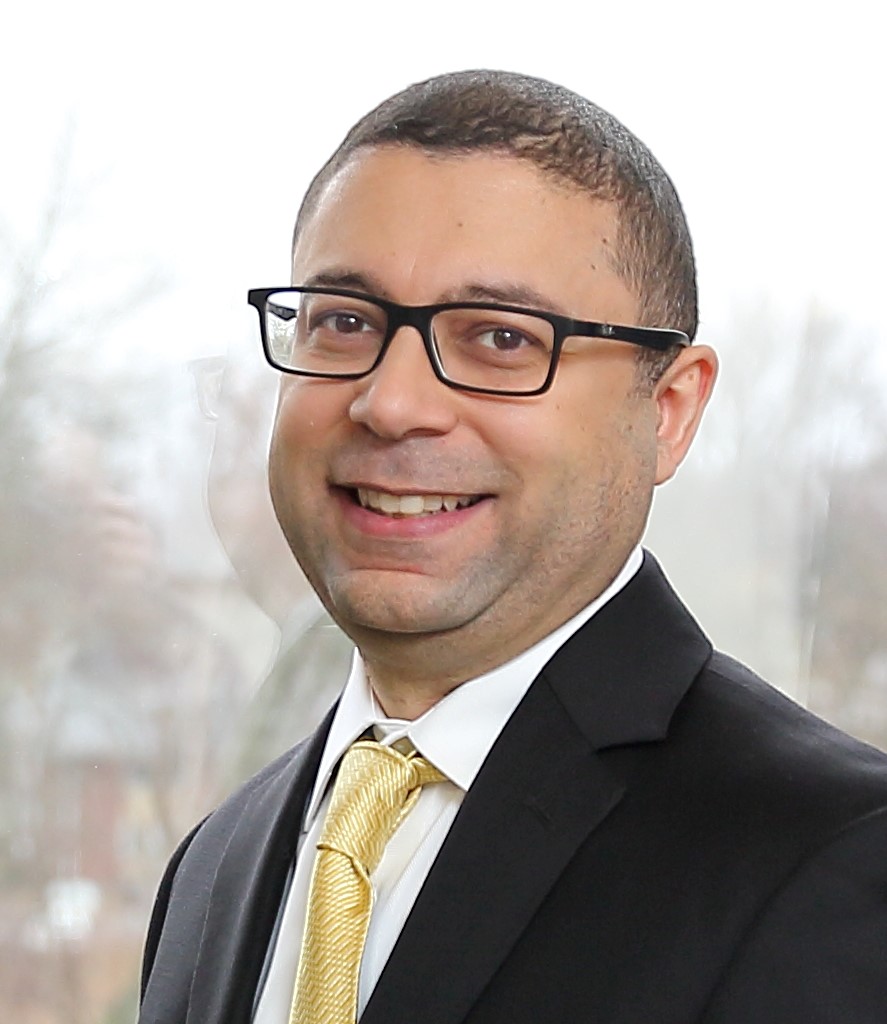
Paulo Fulton says he relies on his training in the M.S.W. program at the Boston College School of Social Work every day. Courtesy photo.
As the chief human resources officer for Riverside Community Care in Dedham, Massachusetts, Paulo Fulton developed a strategic plan in 2021 to increase leadership’s participation in diversity and inclusion initiatives.
Fulton says he relied on his training in the M.S.W. program at the Boston College School of Social Work to design the plan, pulling from his knowledge of how to build relationships with people in order to create a more welcoming and supportive workplace for employees.
It wasn’t the first time that Fulton had put the skills he learned at BCSSW into practice in the professional world. In fact, he’s drawn on his experience on the Heights virtually every single day since he started working as a clinician at the Old Colony YMCA in Brockton, Massachusetts, right after he graduated in 2001.
“There’s never a time when I feel like I’m not using something from the program,” he says. “Understanding people, their personalities, their motivations, what excites them, what they’re afraid of, how to resolve conflicts—all of that comes up daily.”
Fulton credits BCSSW with giving him the confidence to help people, saying his belief in his skillset has fueled more than 20 years of career success. He’s depended on his self-confidence to provide therapy to adolescents with emotional problems at Old Colony, create COVID-19 protocols to enhance the safety of employees at Riverside, and design a management training program for social workers at Eliot Community Human Services in Lexington, Massachusetts.
“I developed confidence in myself to be able to go into a setting and have people say, ‘Yes, you are the person who can help me and my family,’” says Fulton. “I really learned through my field practice and my classes to have confidence that I could identify what was wrong and build relationships with people to help get them to the point that they wanted to be.”
“ There’s never a time when I feel like I’m not using something from the program. Understanding people, their personalities, their motivations, what excites them, what they’re afraid of, how to resolve conflicts—all of that comes up daily. ”
His interest in social work began with a desire to understand the interconnected systems that shape the lives of people who need help. After receiving a bachelor’s degree in psychology in 1999 from Stonehill College in Easton, Massachusetts, he contemplated the merits of advanced degrees in psychology and social work. He chatted with trusted professors, he recalls, and eventually decided that “social work would give me more skills to really be able to help people.”
Fulton chose BCSSW for its particular approach to training students to work with individuals and families—an approach grounded in the Jesuit, Catholic value of cura personalis, which is Latin for “care for the whole person.” As he puts it, “BC really emphasized the full system and understanding all the different pieces that impact people.”
Fulton earned an M.B.A. from Suffolk University in Boston in 2009, leading to a promotion from regional manager to human resources director of workforce development at Eliot Community Human Services. His major accomplishments in this role included doubling Eliot’s training workforce, implementing diversity training for new hires, and increasing the agency’s training offerings from 35 to over 250.
But if he could go back in time, Fulton would have enrolled in BC’s M.S.W./M.B.A dual degree program, which provides students with a unique combination of knowledge and skills in the behavioral and administrative sciences. He says that professionals who want to rise in the ranks of human services agencies should consider the program, especially since it focuses in part on management, decision-making, and leadership.
“I had no idea how much finance and management skills would play into advancing my career,” says Fulton, who taught Financial Management and Resource Development as a part-time faculty member at BCSSW in 2022. “If you want to be a leader where you work,” he says, “you need to learn how to manage programs and develop your finance and leadership skills, while figuring out where HR fits in.”

